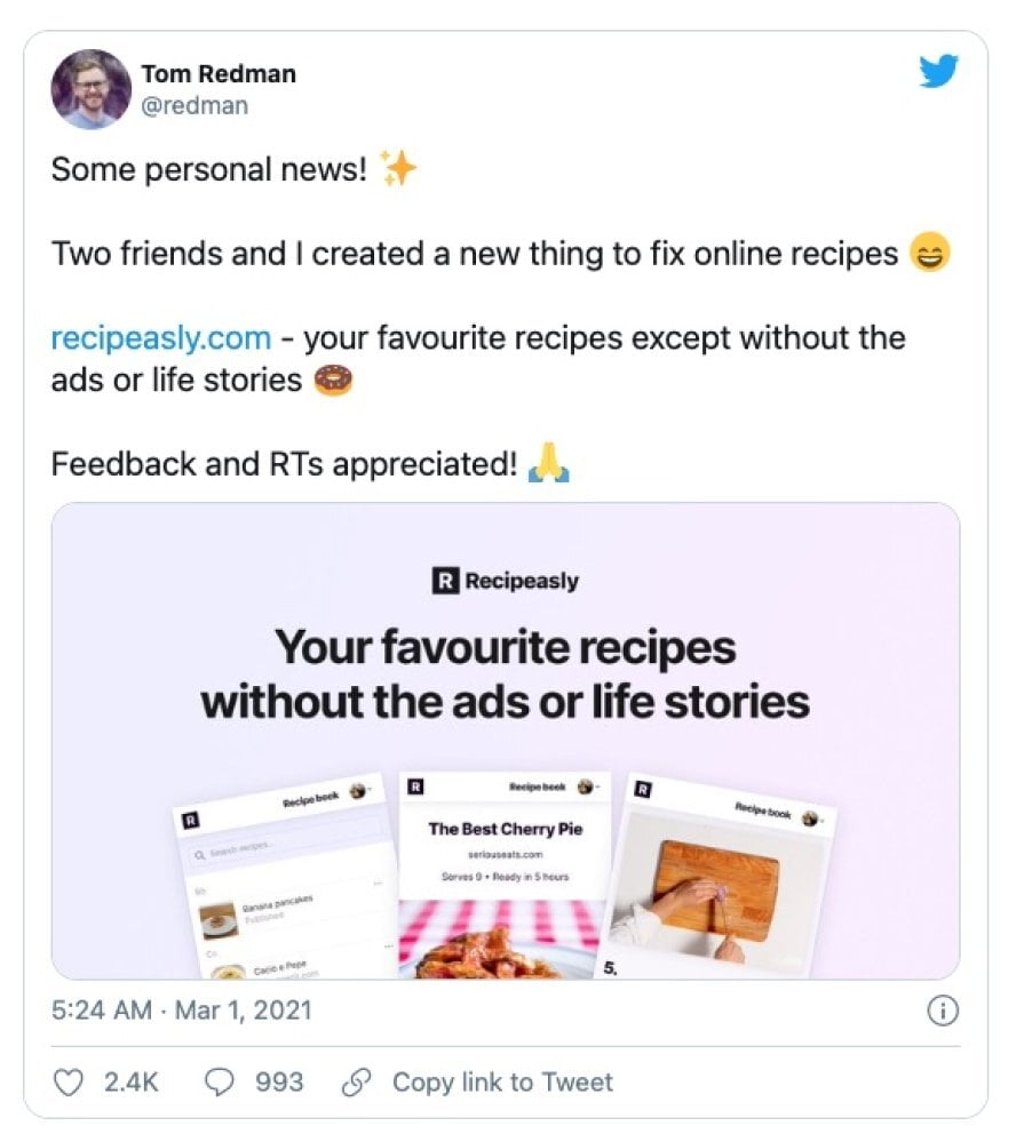Feast or Famine | Twitter post about ‘fixing’ online recipes by removing backstories and ads missed the point
- Social media reacted mostly with anger to the proposal to post recipes without the writers’ stories about them, or ads – and rightly so
- Ads help food bloggers monetise their work, and many followers are interested in the stories behind recipes

Earlier this month, there was a brief Twitter storm. A person named Tom Redman (@redman) posted, “Some personal news! Two friends and I created a new thing to fix online recipes” (here he added a happy face) – “recipeasly.com – your favourite recipes except without the ads or life stories. Feedback and RTs appreciated!”
The reaction was swift. He wanted feedback? He got it.
“So you want to help remove the revenue stream for food bloggers? What the actual ****”. “Hi Tom. The reason I appreciate learning a new recipe is to also learn about the life stories and culture of the people embedded in them. To just wipe them away as an ‘inconvenience’ is super offensive.” “So many recipe bloggers are women and POC so you stealing their content bc you don’t want their lives, just the products for your own profit, is Peak White Guy.”
“‘Fix online recipes’?! So you’re bashing the hard work and business models of food content creators, most of whom are women … and then making it even harder for them to earn income on their content? Not cool, dude.”

“So you’re just … copying recipes from blogs without compensating them or perhaps even acknowledging them?”
“So I’m the right market for this, I just want the recipe, I don’t need the life story. However, isn’t this basically stealing other people’s content and redirecting it to your platform? I may not care about the storytelling, but I don’t think it’s fair to deny them the traffic.”
